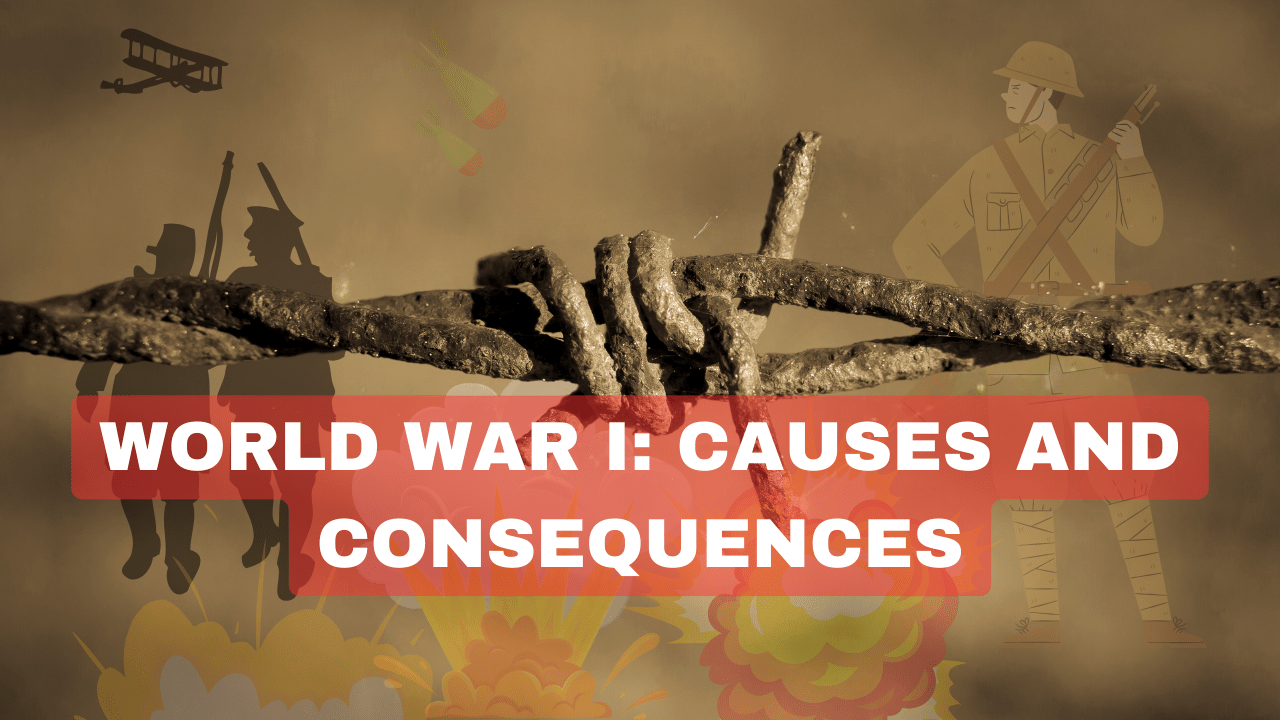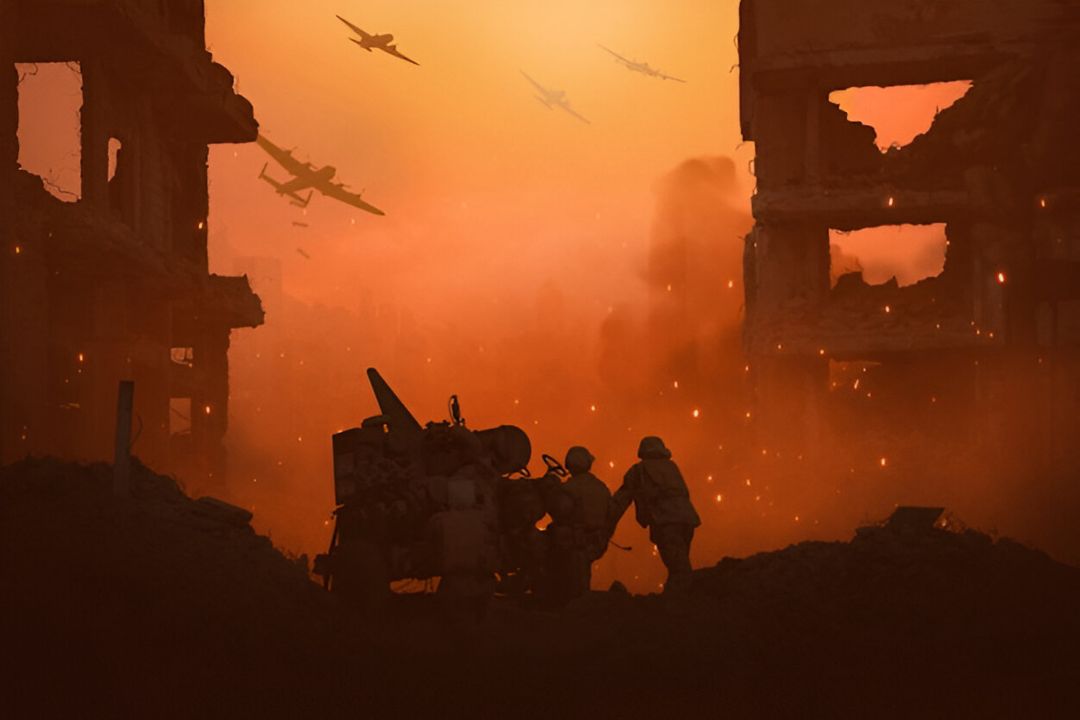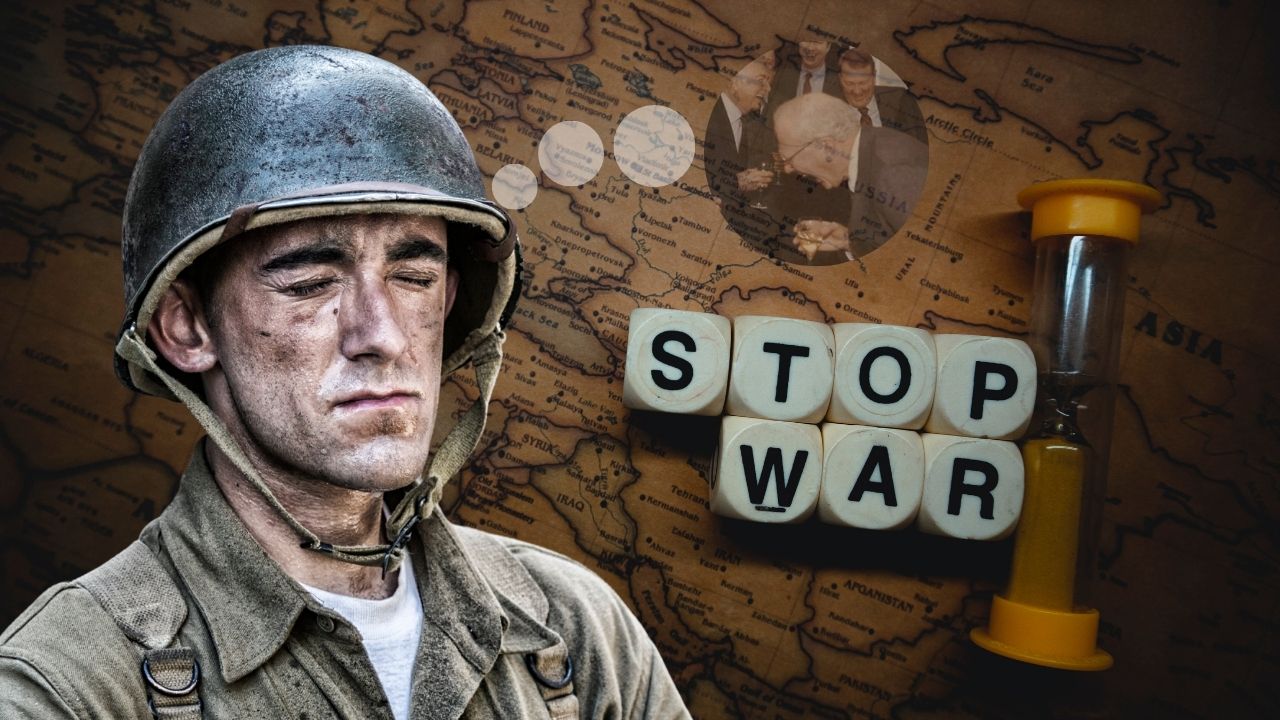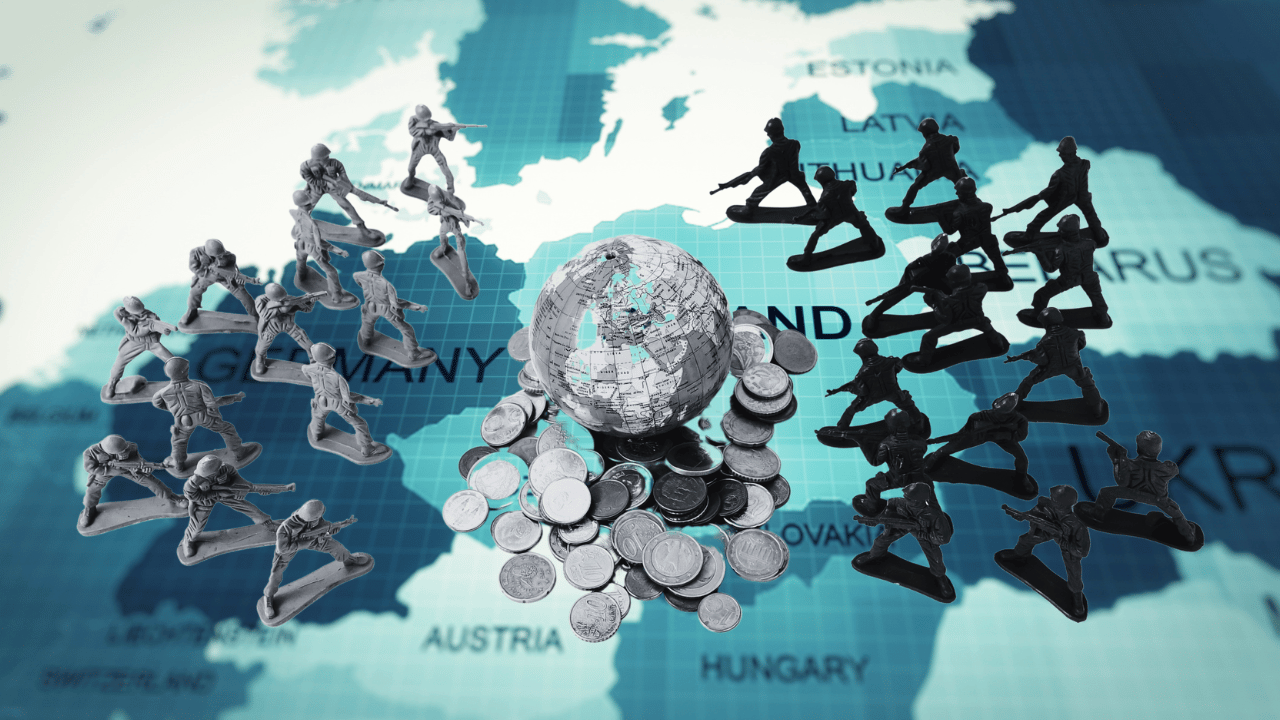During the early 1900s, Europe had many bombs ready to go. All they needed was one spark to set them off. For fifty years, things in Europe had been so bad that peace could no longer be held. There was a race in Europe to get better guns. Things that were not nice, like the war between France and Prussia and Berlin.
The world was heading for a terrible war because of things like the Congress, the Bulgarian Question, the birth of the Triple Alliance, the Russo-German Dispute, the Naval Competition between England and Germany, the Eastern Question, the spirit of Imperialism, the Morocco Crisis, the Serajevo murder, and many other things. Europe was split into two unfriendly groups by this point.
These countries were in the first group: England, France, Russia, Serbia, Japan, Portugal, Italy, the United States, Romania, Greece, Siam, Siberia, Cuba, Panama, Brazil, Guatemala, Nicaragua, Costa Rica, and more.
Second Group: Germany, Austria, Hungary, Bulgaria, and Turkey were in the other group of Central Powers.
Austria and Serbia went to war with each other after Archduke Franz Ferdinand was killed on June 28, 1914. The war slowly grew into a world war. This war had people from almost every country and race in the world.
The state of politics right before the First World War 1
Almost every country fought in the war that happened from 1914 to 1918. It was a huge change in the political, economic, and social situations in European countries at the time. Imperialists were at war over how to divide up the colonies. Besides the main reasons for the war, there were other things that led to it. There were five big countries in the world when World War I started: Austria, France, Britain, Prussia, and Russia. Later, Italy joined this group, and Germany took the place of Prussia. By the middle of the 1800s, there was a perfect balance of power, but over time, it started to slip away.
In the forty to fifty years before World War I, there was a fierce race between states to build up their armies, take over new colonies in Asia and Africa, and change the boundaries of lands they had already taken. Self-defense coalitions were being made, and military gear was quickly growing. European countries were trying to get stronger. Southern Slavs inside and outside of Austria-Hungary wanted to join together to form a different state, and Poles living in Austria, Russia, and Germany wanted to make Poland its own country. Italy wasn’t happy with being united, and its young people were feeling like they should take over the world.
France was getting ready to get back at Germany for taking away Alsace and Lorrain from it in 1870, which were rich in minerals. Because of this, Germany made peace treaties with France’s neighbors and increased its armed strength. Young people were taught to be chauvinistic, and they were told that war is necessary for the world to move forward. Germany worked hard to make its navy stronger. In 1882, it signed the Triple Alliance with Austria and Italy, which said that if a foreign power invaded, they would all work together to fight back. Germany made her situation strong in this way.
As Germany’s nationalism grew, Britain made deals with Japan in 1902, France in 1904, Russia, and France in 1907. It sealed the deal made in 1893 between Britain, France, and Russia to fight Bismarck.
The unstable Balkan states scared the government in Austria-Hungary, which was made up of people of different races. Serbs were the biggest problem because she wanted to make a state out of all the Slavs. The leader of Bulgaria was called Czar, and Greece dreamed of a kingdom. Religion and social issues also caused a lot of trouble in the Balkan states. Christian powers in this area wanted to get rid of the Islamic Turkish government, and Austria-Hungary was ready to help them do it.
Russia used this reason to try to spread all the way to the Mediterranean, but Britain didn’t like the idea. Russia also designed to increase its area of influence against Germany, Austria and Hungary in the near east and the Balkan states.
Even though the USA was a strong country, it did not want to take over other countries. As it didn’t want to upset the balance of power in Europe, it stayed out of the world’s fights. All of Europe bought weapons from it, but it didn’t like it when other countries got involved in its own business. Japan was becoming a more important country. So, there was a feeling of fear and competition, and war was about to start.
What led to the First World War
1. Anger Towards Nationalism—The French Revolution sparked an anger toward nationalism that grew quickly after the Vienna Congress. It was this feeling that brought Italy and Germany together. Nationalism led to the birth of new countries, but violent nationalism made them fight with each other. Alsace and Lorraine were wanted by France all over the country after 1871. Italian nationalists started an anti-Austrian drive to take back the land of Trentino Trieste, which made things worse between Italy and Austria. Poles who were ruled by other countries wanted to start their own country again. It was the goal of Balkan states like Serbia for their citizens to join together to make one bigger Balkan state. All the countries in the world were eager because of their sense of pride.
2. Diplomatic Treaties: Trying to be diplomatic often makes things easier for war to happen. Things were like this before the First World War. Prof. Fay writes, “The main reason for the war was the system of secret alliances that formed after the Franco-Prussian War. It gradually split Europe into two hostile camps of powers that became more and more suspicious of each other and steadily built up bigger and bigger armies and navies.” “From one point of view, this system helped keep the peace in Europe because to save one of their colleagues from war, they persuaded their friends to stay out of war. On the other hand, this system made sure that if there was a war, all the big powers would have to join it.” Each member was forced to do things that didn’t help him but were necessary to help his friends.
For example, Germany didn’t want to be involved in the Balkans, but it had to help its friend Austria. Similarly, France had to back Russia’s policy in the Balkans just to keep her friendship. It was these diplomatic ties that led to the world war.
3. Militarism and the Armament Race: During the latter part of the 19th century, Europe experienced an increase in militarism due to factors such as aggressive nationalism, economic rivalry, and heightened international tensions.
“Militarism encompasses two ideas: firstly, the perilous and onerous structure of extensive permanent armies and sizable naval forces, accompanied by the negative consequences of espionage, suspicion, fear, and animosity.”
Furthermore, a formidable faction of military and naval officers, under the leadership of the General Staff, possesses greater authority compared to the civilian officials, particularly in periods of political turmoil.
Germany’s efforts to enhance its naval capabilities led to a direct rivalry with Britain’s fleet, which in turn had repercussions for other European nations. Each nation commenced the process of bolstering its military forces, since possessing a formidable military was regarded as an emblem of national prestige.
Despite the fact that the military planning was carried out with the intention of safeguarding the nation, it resulted in a competition for armaments that instilled fear, distrust, and animosity among all parties involved. The growth of the military in European countries had a significant impact on both their internal and foreign affairs.
There was a consensus among people that war was the sole means to address world issues. The pursuit of militarization and the competition to acquire more weaponry resulted in the division of the major European nations into two antagonistic factions, each well-equipped with arms. There was now just one more action required to initiate a conflict.
4. There were two types of growth in the world at the start of the 20th century: imperialism and economic competition. The developed and wealthy nations were eager to make more money and find new places to sell their goods. They needed more and more farms to make enough money. France and Italy, whose agriculture and industry were in a state of balance, wanted to take control of countries in Asia, Africa, and Eastern Europe so they could spend their extra money and dump their goods. There was a rush for colonies because of this.
Most of Africa was owned by different European countries by the end of the 1800s. A big part of it went to France and England. At the start of the 20th century, England and Germany were competing more and more in business. The European powers were rushing to grow their political and economic empires in China and the far east. Because of this, the European countries’ desire for trade and expansion made a war necessary.
5. World Anarchy—During the first ten years of the 20th century, Europe was filled with fear and chaos. Things that happened after 1900 made things tense around the world.
The Russo-Japanese War (1904–1905) also had an effect on politics in Europe. In Morocco, Germany went up against France, which caused a major problem on the world stage. Russia tried to grow her empire in the far east, but was stopped. She then started meddling in the Balkan states’ affairs. This made things more difficult politically there.
France sent troops to Fez in 1911 to put down the revolt and protect the lives and property of the Europeans who lived there. Germany was against this, but they had to give in when the British warned them not to. During the crisis, England sided with France, which made things worse between her and Germany.
The foreign mood was also tense during the Balkan Wars (1912–13). They sped up the race for weapons and aggression. “Nothing else was so much to blame for the World War of 1914 as the Balkan Wars,” write Grant and Temperlay.
6. The Character of Emperor William Kaiser—One of the things that led to the war was the character of Emperor William Kaiser. He had a lot of goals and a short fuse. In foreign issues, he was set on the principle of “supremacy in the world or extermination.” He wasn’t ready to give in. He thought that Britain’s strategy of neutrality was a weakness. In the end, this false belief destroyed him. Because of his angry attitude and desire to rule the whole world, he brought Europe to the brink of war.
7. Social Unbalance: Nationalism that was too narrow, anger over failed negotiations, selfishness, and worry for money had grown so much that calls for peace were heard only by a few people. There was no peace or kindness. Instead, there was fear, worry, and evil. People from each country thought their own culture was better than the other’s and that it was their holy task to bring civilization to the barbaric and backward countries. The rise of materialism made people less religious and kind, but genocide didn’t make people less moral.
8. The Press and Other Ways of Communicating: Because of strong nationalism, the press in every country covered many events in a way that got people excited and made it seem impossible for disagreements to be solved peacefully. Because of news stories, Germans turned against the English people, and ties between France and Germany got worse. After Archduke Francis Ferdinand was killed, media in both Serbia and Austria wrote mean things about each other. This made people very angry in both countries.
Even though the press in Eastern and Western Europe wasn’t as free as it was in England, it still played a big part in starting the war. In fact, the Press not being able to do what it wanted was a major cause of the First World War. In every important country, the press spread hateful information.
9. Lack of an International Organization—At this point in time, there was no international organization in Europe that could help states work out their differences through talks instead of going to war. All of the states thought they were very wealthy and didn’t care about foreign promises.
Secret partnerships meant that the people or the house of representatives in a country did not know what kind of deals its ambassadors or ministers had made with other countries. In this case, the House of Commons did not know anything about the promises made to France before the war. In the same way, Italy, which was part of the Triple Alliance, made hidden deals with both France (1902) and Russia (1909), even though no one could have forced her not to. Because of this, there was no international body to keep an eye on any country. Each country could do what it wanted, whether it was right or wrong.
10. Immediate Cause of the War: Austria and Serbia had not had good ties since 1908, and things got even worse in 1914. Some violent groups in Serbia planned the murder of the governor of Bosnia. At this point, they found out that Prince Ferdinand of Austria was going to Bosnia on a business trip, so they made plans to kill him. High-level officials in Serbia gave these people weapons and ammo and helped them get into Bosnia.
Prince Ferdinand and his wife Sophie were killed when Gabrillo Princip fired two shots at them as they were riding toward Sarajevo’s town hall on June 28, 1914. This event pushed Europe into the middle of a war.
How Austrians Reacted to the Murder: As soon as this news got to Austria, people were filled with anger and hatred. The government blamed Serbia for this, and Austria’s foreign minister, Berch, said that harsh action would be taken against her.
Conrad, who was Commander in Chief of Austria, also blamed Serbia for the murder and wanted to start a war with her. But Emperor Francis Joseph didn’t want to go to war because he thought that a war with Serbia could lead to a war with Russia. Austria’s ultimatum to Serbia: Without Germany’s help, Austria could not risk going to war with Serbia.
Austria’s foreign minister, Berch, wrote to the Emperor of Germany on behalf of Emperor Francis to explain Austria’s strategy and ask for his help and support.
On July 5, 1914, Germany told Austria that they would fully back any action she took against Serbia. People call Germany’s help for Austria a “blank check.” On July 23, the Austrian government gave Serbia a choice: accept its terms within 48 hours, or else.
The Serbian government agreed to most of the terms, but not two that were bad for her authority and reputation. The answer from Serbia was good enough for all European countries. It meant a very quiet surrender and didn’t leave any grounds for war.
Austria’s foreign minister, on the other hand, was already set on starting a war, and on July 28, 1914, he did so. Serbia wanted the war and told everyone to get ready for it before she even sent her reply. Sajanov, the Russian foreign minister, chose to back Serbia from the start. France also said it would back Russian policy.
Efforts to Stop the War: Both Britain and Germany tried to keep the war from spreading, but they couldn’t. Sir Edward Gray, the British foreign minister, did everything he could to stop the war because he didn’t want to upset the peace in Europe.
He suggested that the representatives of France, Germany, Italy, and England get together in London to talk about how to stop the war between Austria and Serbia, but Germany said no. She didn’t use her power over Austria, because if she had, the war could have been stopped. So, all efforts to reach a deal failed. The war starts—Austria struck Serbia on July 28, 1914, which was the first act in the First World War. Germany went to war with both Russia and France on August 1, 1914, and the Russian army was warned the next day. On this day, Italy said it would stay neutral.
In the end, all of Europe’s important countries joined the war.





